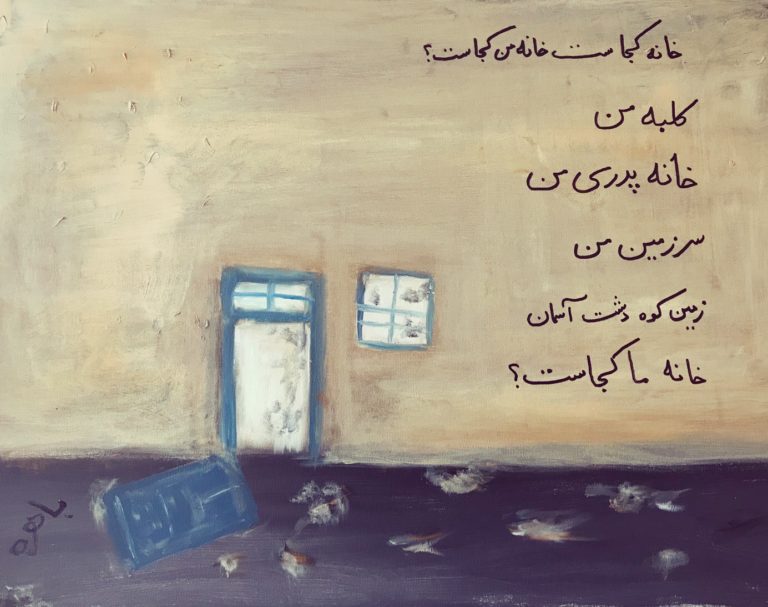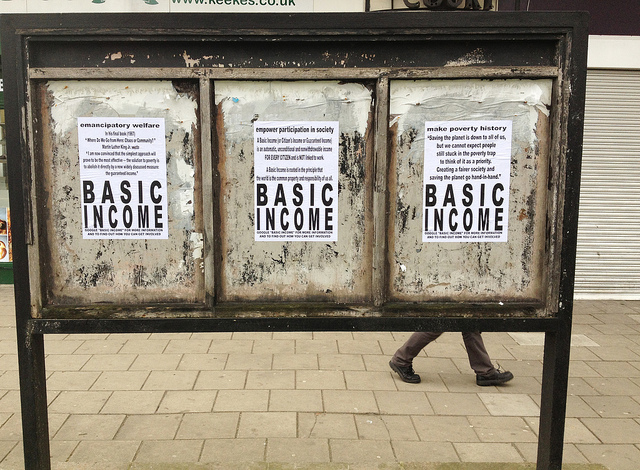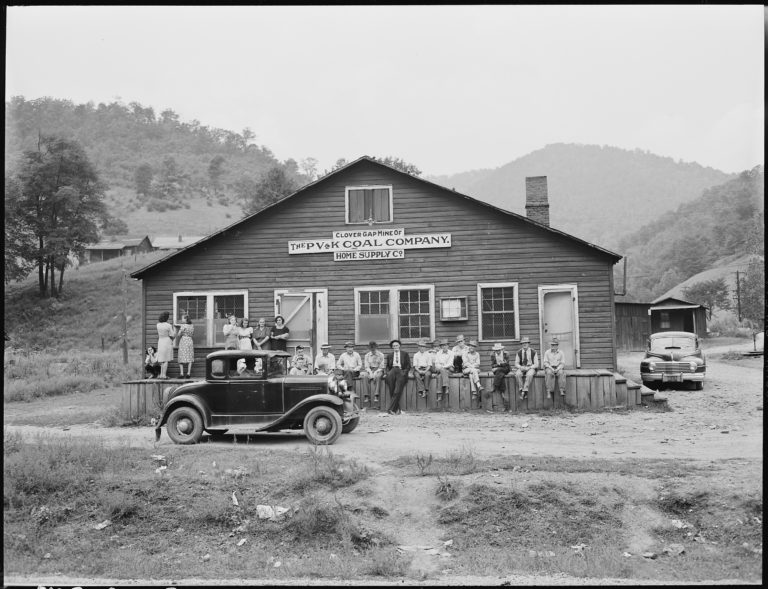This issue marks a number of important milestones for the journal and features a combination of peer-reviewed academic articles, a forum on universal basic income (UBI), and book reviews. With this issue we are also pleased announce a number of changes to the Lateral editorial team. These changes significantly extend the possibilities for the journal into the future, while reinforcing the work that is already underway.
Issue 7.2 (Fall 2018)
Killer Drones, Legal Ethics, and the Inconvenient Referent
I offer a close reading of the legal and political discourses by means of which the United States government recently has sought to legitimate its use of weaponized drones to carry out targeted assassinations of suspected anti-U.S. combatants abroad. Situating my analysis in the context of philosophical approaches to the problem of truth and linguistic reference, I examine official government speeches, legal documents, and reports of civilian casualties. My semiological critique of these texts is carried out both within and against the “humanitarian” framework of just war theory, my dual approach being necessitated by the twofold strategy of the government’s justificatory rhetoric: on the one hand, the government’s public discourse distorts the accepted meaning of certain unambiguous and pragmatically functional legal signifiers (the jus ad bellum use of terms such as self-defense, imminence, and necessity, for example); on the other hand, it exploits the uncertainty that is endemic to some of those very same terms (necessity and proportionality in particular) when they are used to refer to the jus in bello quantification and valuation of incommensurable variables—of, typically, a particular number of civilian casualties relative to the amount of “military advantage” to be derived from the attack that “unintentionally” produces those casualties.
Troubling the Home/Land in Showtime’s Homeland: The Ghost of 1979 and the Haunting Presence of Iran in the American Imaginary
In my close reading of the drama series Homeland, I illustrate how the divisive pull between “fascination and contempt, desire and disgust” as well as the “simultaneous embracing and disavowal” that cultural critics argue define Iranian Americanness become embodied in the character Fara, a young Muslim Iranian American woman recruited into the CIA for her language and technical skills. This essay asks, among other questions: what does it mean to have anxiety over your birthplace or ancestral homeland? What does a “simultaneous embracing and disavowal” do to a person over time? I argue that as a consequence of how her body is read, Fara is continually denied access to a home and a land and ultimately becomes discarded after performing her role as an agent of the state apparatus. In addition, this essay considers how the ghost of the Iranian hostage crisis of 1979 is frequently invited to speak as an origins myth for contact between the US and Iran that subsequently shapes the lived realities of Iranian Americans nearly forty years later.
Dance, Real Estate, and Institutional Critique: Reconsidering Glorya Kaufman’s Dance Philanthropy in Los Angeles
Glorya Kaufman, a philanthropist with a keen interest in dance, has given significant financial resources in recent years to support dance at universities and theaters in Los Angeles. Kaufman’s dance patronage is enabled by a fortune amassed by her late husband. Along with Eli Broad, Donald Bruce Kaufman co-founded Kaufman & Broad in 1957, which became a major purveyor of housing subdivisions in the United States and abroad. In this article, I contextualize Kaufman’s philanthropy within the processes that generated her wealth and the economic role that suburbanization played in the post-war period. In distinction to celebratory narratives that extol patronage for dance, a Marxist analysis of Kaufman’s philanthropy reveals the material connections between concert dance and real estate development. By de-obscuring the source of Kaufman’s wealth, I show how dance funding is bound up in the history of white flight, urban redevelopment, and real estate schemes in Southern California. Practices of institutional critique might prove useful for rethinking Kaufman’s gifts and the political functions of dance patronage.
Indigenous Cosmopolitanism: The Alaska Native Heritage Center
The Alaska Native Heritage Center (ANHC) is a living heritage center located in Anchorage, Alaska. Although there are many tourist destinations in Alaska, Denali National Park for example, Anchorage should be thought of as the cosmopolitan center of Alaska, its largest and most populous city. The Alaska Native Heritage Center is an expansive site with indoor and outdoor components focusing on history and contemporary culture. The Heritage Center was initiated and curated by Alaska Natives as opposed to anthropologists or historians. The site as a whole can thus be understood as authored by Alaska Natives. The visitor experience, story of the center, and location provide many ways to bridge the site with the concept of cosmopolitanism. As I have experienced the site as a visitor, I will consider the center in relation to the notion of cosmopolitan curiosity, particularly in conjunction with scholar Natasha Eaton’s concept of cosmopolitan nostalgia. The ANHC serves as symbol of contemporary self-definition of Indigenous peoples. By placing the center in Anchorage, the Heritage Center founders were making a conscious choice to share their history and culture with non-natives. This enacts their sense of belonging in the world relating to cultural theorist Anthony Kwame Appiah’s central thesis of cosmopolitanism in Cosmopolitanism: Ethics in a World of Strangers (2006). Although not everyone has the opportunity to visit Alaska, those who do are likely to travel to Anchorage and once there to visit the ANHC. Due to colonization, indigenous peoples of the United States make up an extremely small percentage of the population, yet by no means are they—as outmoded anthropological monographs attest—‘disappearing’. By highlighting a contemporary example of indigenous living culture, I would like to consider how cosmopolitanism as a concept can incorporate this Indigenous mode of being into its larger global story.
Art as Protest, Cooking as Resistance: Everyday Life in Taipei’s Housing Rights Movement
From 2010 to 2013, during the height of Taiwan’s housing rights movement, Participatory Art became instrumental in defending the right to the city. In this housing rights movement, artists, students, residents, and other professionals united to challenge neoliberal urban development. Two protest art projects in Taipei, Operation Little Barbarossa and Cooking at the Front Line, illustrate the interdisciplinary, trans-social strata collaboration. The artworks responded to encroachment on land and estate by the Taipei City government and real estate developers. The art forms employed included performance art, dance, writing, sculpture, graffiti, graphic design, and photography. Through everyday acts, such as cooking and driving, the two works lent voice and visibility to marginalized residents. The language and imagery of these protest gestures produced a theatricality that was at once jovial, amiable, critical, and contentious. The coexisting confrontational and convivial tones also encapsulate Taipei’s housing rights movement, in which the Taiwan Alliance for Victims of Urban Renewal exercised a central role. This article integrates findings from archival analysis, interviews, participation observation, and site visits. The content considers the relationship among Participatory Art, social activism, urban planning, and neoliberalism. The author also draws connections between the visual and cultural aspects of the featured Participatory Art. The text concludes that Operation Little Barbarossa and Cooking at the Front Line offer a broader and richer interpretation of Participatory Art. They demonstrate diverse adaptations and multiple approaches to facilitating socially-minded, collaborative art. They also confirm Participatory Art’s ability to agitate problematic dynamics in the (re)construction of global cities.
How Makers and Preppers Converge in Premodern and Post-Apocalyptic Ruin
This article investigates how US maker culture affirms values of self-reliance and personal responsibility through its increasing convergence with future-oriented preparation in order to construct a US maker identity differentiated from other making cultures worldwide as an ideological project of white American exceptionalism. I argue that the convergence of contemporary making with apocalyptic preparation in the US articulates making practices as vital for individual survival for apocalyptic futures as well as constructs nonwhite and non-Western geographies as simultaneously premodern and post-apocalyptic sites of ruin. US maker culture, while drawing inspiration from these geographies, suggests that such locales will be unaffected by apocalypse and, thus, cannot prepare for it. Consequently, US maker culture excludes the nonwhite inhabitants of these non-Western geographies from the idealized subjecthood rooted in the do-it-yourself (DIY) ideology and preparatory logic that maker culture endorses.
2018 Randy Martin Prize
License to Extract: How Louisiana’s Master Plan for a Sustainable Coast is Sinking It
This article explores the deployment of Louisiana’s highly touted $50 billion, fifty-year Master Plan for a Sustainable Coast, which is often characterized as saving Louisiana’s Working Coast of disappearing marshlands that are home to several major industry sectors, along with migratory flyways, seafood estuaries, and two million residents. As a concept, the Working Coast attempts to signify the importance of Louisiana’s coastal zone to the nation’s economy in order to justify expensive restoration projects. By complicating the euphemism and the extractive logic it signifies, I hope to show that the state’s current approach to slow the disappearance of its coastline in fact rationalizes the very practices sinking it. The Working Coast reifies the state’s fragile marshlands through metrics that can only be realized through continued extraction.
Forum: Universal Basic Income
Introduction: Political Economies of Basic Income
Basic income is an idea almost as old as capitalism itself, appearing very early in the course of its historical development. The emergence of the idea of a basic income in the first few centuries of capitalism’s development in England became inextricably linked to economic crisis. Unsurprisingly, interest in basic income plans have resurfaced yet again in the post-2008 conjuncture. Current debates about basic income often invoke the framework of a morality play about personal responsibility, work ethic, and frugality that obfuscate organic features of the capitalist social formation, such as economic crisis. Therefore, this forum returns to the Marxist approach to answer the persistent questions that basic income provokes, and to help enlarge the Left debate on basic income that exists on the margins of public discourse.
Basic Income as Ideology from Below
Most Left critiques of basic income assume a model of “false consciousness” on the part of basic income advocates. These critiques do not account for how desires for a basic income may also come from the material inversion of social relations that occurs under capitalism. Considered from the vantage point of fetishism and common sense, basic income demands appear rational rather than the product of false consciousness, which in turn informs how the left should organize “good sense” to build a hegemonic bloc.
Species-Beings in Crisis: UBI and the Nature of Work
Marx famously argued that labor, under capitalism, alienates humans from not only the products of their labor, but from their very nature. Further, capitalist labor presents a “double freedom” for the worker that is, of course, anything but free: the freedom to either work for an exploitive boss, or to refuse, and starve. UBI would seemingly allow for way out of such a conundrum, but would it also open the door to allow humanity to regain their status as “species-beings”? I explore the idea of UBI as presenting an opportunity for meaningful work and a subversion of the logic of capital. Does UBI indeed grant workers more freedom, or does it merely contribute to the continued denigration of social relations under capital?
From Company Town to Post-Industrial: Inquiry on the Redistribution of Space and Capital with a Universal Basic Income
This paper considers what effects a universal basic income could have on disrupting social and economic inequality in the tensions of urban/rural divide. She frames her inquiry on the political economy of land and labor in the collapse of coal industry “company towns” and its structural aftermath in Central Appalachia.
We are All Housewives: Universal Basic Income as Wages for Housework
This paper proposes to orient contemporary debates over universal basic income (UBI) to broader social theory in the Marxist and Marxist-feminist traditions. Drawing on theories of labor decommodification, market socialism, and social reproduction, as well as more public-facing debates over policy, the purpose of this analysis is to better clarify the stakes a burgeoning left politics might have in pursuing the demand for UBI. Following key justifications put forward by chief proponents of the Wages for Housework movement for pursuing seemingly impractical, impossible, and politically ambiguous demands, I argue that UBI is best treated as a political perspective with both reactionary and revolutionary undercurrents. Urging caution, not dismissal, I refute more conventional economic analysis leading to common refrains against UBI, and suggest possible ways to bend UBI toward more explicitly socialist aims.












